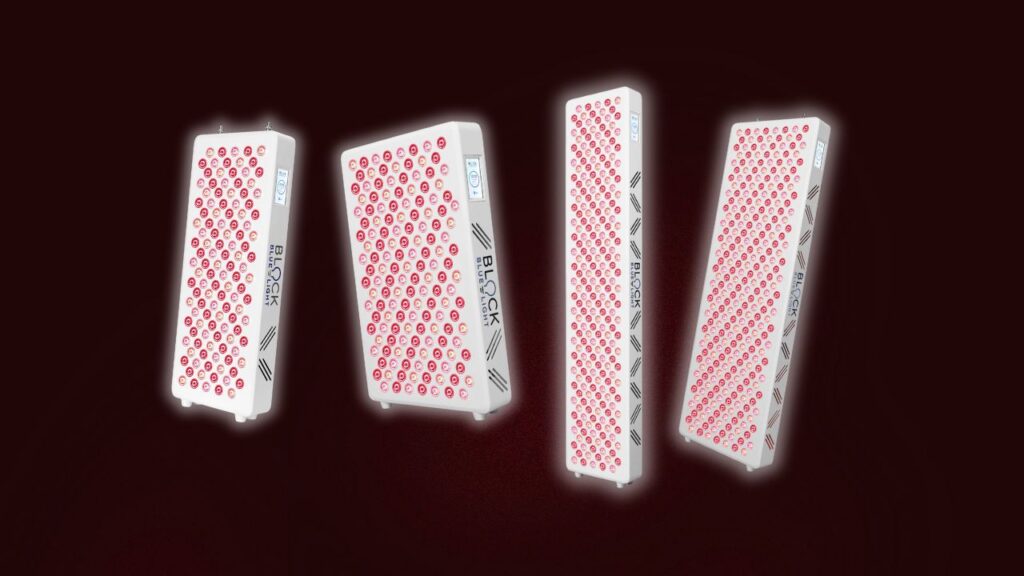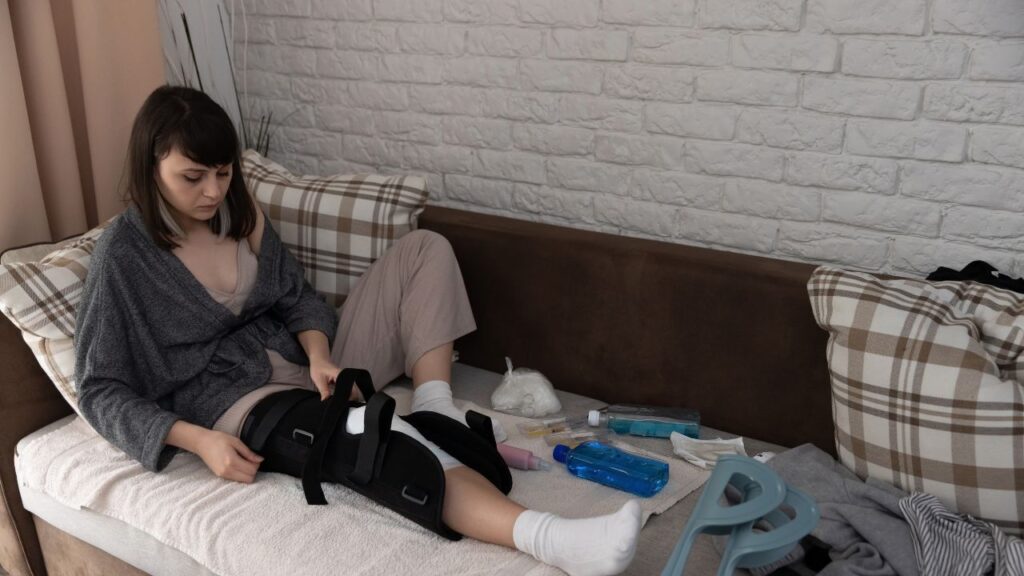Cold Therapy And Its Psychological Benefits Explained
We include links to products we think are useful for our readers. If you click and buy a product through one of the affiliate links on this page, we may earn a small commission.

Key Takeaways
Ice baths and cold showers significantly improve mental health, resilience, and stress management.
Triggering norepinephrine and endorphins release, it sharpens focus, improves mood, and reduces pain.
Builds mental toughness and better stress management skills with regular use.
Supports mindfulness and mental clarity, aiding in better concentration and reducing symptoms of depression and anxiety.
Strengthens the mind-body connection through practices like controlled breathing.
Let’s talk about something cool, quite literally – cold therapy.
You might have heard about athletes plunging into ice baths. Well, it’s not just about soothing sore muscles. There’s more to this chilly experience. It’s fascinating how exposing ourselves to the cold can actually do wonders for our minds.
Now, when we talk about cold therapy, we’re referring to techniques like ice baths, cold showers, and even cryotherapy sessions.
Sounds chilly, but stay with me.
This isn’t just about enduring the cold for the sake of it. There’s a deep connection between braving the cold and how our minds react and adapt. It’s about strengthening that mind-body link, where our mental state influences our physical well-being and vice versa.
In the next few sections, we’ll dive (not into an ice bath, don’t worry) into the world of cold therapy. We’ll explore how this bone-chilling practice can surprisingly warm up our mental health, boost resilience, reduce stress, and even clear our minds.
So, are you ready to explore the cool side of mental well-being? Let’s get started!
The Science Behind Cold Therapy
Once we step into that brisk cold shower or ice bath, our body goes into alert mode. The cold sensation is a direct line to the brain, triggering a fascinating response. The brain, acting like a command center, sends out neurotransmitters. These are our body’s messengers, and they’re crucial in this process.
Enter norepinephrine. This neurotransmitter is a bit of a multitasker. It sharpens our focus and regulates our mood. Ever felt that surge of alertness after a cold plunge? That’s norepinephrine working its magic. It’s also behind the lift in spirits many feel with cold therapy.
Then we have endorphins, our body’s feel-good chemicals. Cold therapy triggers their release, leading to a natural high. It’s a profound change that can improve our overall sense of well-being.
But there’s more.
Cold therapy is also a combatant against inflammation and pain. It’s like a natural remedy, working quietly but effectively within us.
These chain reactions explain why cold therapy is more than just a test of endurance. It’s an excellent way to enhance our mental and physical health.
The Psychological Benefits of Cold Therapy

Courtesy: Dr. Robert Kiltz
Now, let’s explore how cold therapy can be a game-changer for mental resilience. It’s like training for your mind. Consistent exposure to cold doesn’t just build a tolerance to lower temperatures; it also fortifies mental strength.
Think about the first time you tried a cold shower. Overwhelming, right? But over time, something interesting happens. You start to adapt, not just physically, but mentally too. This is resilience in action. It’s about bouncing back stronger and facing challenges head-on.
Researchers have found that people who practice regular cold therapy often feel more mentally robust. It’s like they’ve developed a shield against stress. When life throws curveballs, these individuals stay more composed and collected.
This isn’t just about enduring the cold—it’s about learning to stay calm under pressure. Each cold exposure is a lesson in managing discomfort, a skill that translates well into daily life challenges. It teaches us that discomfort is temporary and that we can push through tough times.
Cold therapy also encourages the practice of mindfulness. When you’re in the cold, the focus naturally shifts to breathing and being present in the moment. This enhances mental clarity and peace, strengthening the mind’s ability to cope with stress.
And just as we exercise to strengthen muscles, exposing ourselves to the cold strengthens our mental muscles. This newfound resilience has a ripple effect, enhancing various aspects of our lives, from personal relationships to professional challenges.
Cold Therapy Decreases Stress
Yes, it might sound counterintuitive – how does embracing the cold ease stress?
When we expose our body to cold temperatures, our stress response system gets involved too. Cold exposure acts as a mild form of stress. By regularly subjecting ourselves to this controlled stress, our body gets better at handling stress overall.
This process is known as hormesis. It’s like giving our body a mini stress workout. Every time we do this, we’re training our body to cope with stress more effectively. Over time, this can lead to lower overall stress levels. Think of it as building stress resilience, one cold shower at a time.
There’s also a physiological aspect to this. Cold therapy stimulates the vagus nerve, which plays a key role in our body’s relaxation response. Activating this nerve helps to decrease heart rate and lower blood pressure, promoting a sense of calm.
Moreover, cold therapy can interrupt the typical stress or anxiety cycle. When you’re focusing on the physical sensation of the cold, it’s harder to dwell on stressors. It’s a moment of pause, a reset button for your mind.
So, while stepping into the cold might seem intimidating, it’s a pathway to tranquility. Regular cold exposure can be a powerful tool for stress management, offering a unique way to restore balance and peace in our hectic lives.
Cold Therapy Enhances Mood and Mental Clarity
One of the most immediate effects of cold therapy is the jolt it gives to our system. Many people report feeling more alive, energetic, and optimistic after a cold session. It’s as if the cold washes away mental sluggishness.
This boost in mood is partly due to the release of endorphins, our body’s natural feel-good chemicals, which we talked about earlier. But there’s more to it. Cold therapy can improve neurotransmitter function, leading to better mood regulation. Essentially, it helps in keeping the blues at bay.
Then there’s the aspect of mental clarity. Ever noticed how a cold shower can snap you out of a drowsy state? Cold therapy can enhance cognitive function, leading to sharper thinking and better concentration. It’s like a reset button for your brain, clearing out the cobwebs and helping you think more clearly.
Regular cold exposure can also help in reducing symptoms of depression and anxiety. The cold forces a mental shift, a break from the constant stream of thoughts. This break can be incredibly therapeutic, offering a moment of clarity and calm in a turbulent mind.
Cold Therapy as a Tool for Mind-Body Connection
When you immerse yourself in the cold, it’s not just about enduring low temperatures; it’s an exercise in mindfulness. This practice forces you to focus and be fully present. You become acutely aware of your breath and your body’s reactions, deepening your connection with yourself.
To enhance this awareness, several techniques can be employed.
Controlled breathing: it helps maintain calm and focus during cold exposure.
Develop endurance: gradually increasing the duration and intensity of your cold therapy sessions can also build both mental and physical resilience over time.
Gauge bodily responses: engaging in reflective practice after each session can be insightful. By reflecting on your experiences, you can track and understand the changes in your mental and physical responses, fostering greater self-awareness.
The benefits of a stronger mind-body connection are manifold. Improved self-regulation is one such advantage; being more in tune with your body’s signals can help manage emotions and stress more effectively. You’ll likely notice an enhanced awareness of physical sensations, leading to a better understanding of your body’s needs and responses.
More importantly, this practice can bolster your mental fortitude, equipping you with the resilience to face life’s various challenges with a composed and balanced approach.
Frequently Asked Questions
Yes, cold therapy acts as a mild stressor, training the body to manage stress better and stimulating the vagus nerve, which promotes relaxation.
Moreover, cold therapy stimulates the vagus nerve, a crucial component of the parasympathetic nervous system responsible for promoting relaxation and reducing stress. Activation of the vagus nerve through cold exposure can lead to increased heart rate variability (HRV), a marker of resilience to stress and overall autonomic nervous system health.
By incorporating cold therapy into a regular routine, individuals may experience improved stress management, enhanced mood regulation, and greater overall resilience. It’s important to start gradually and build tolerance to cold exposure, allowing the body to adapt and derive maximum benefits from this natural stress-relieving practice.
Absolutely! Cold therapy stimulates the release of endorphins and improves neurotransmitter function, leading to mood elevation and a sense of well-being.
The combination of increased endorphin release and improved neurotransmitter function through cold therapy can lead to noticeable benefits such as reduced feelings of anxiety, improved resilience to stress, and an overall uplifted mood. Many individuals report feeling more energized, focused, and mentally clear after engaging in cold exposure practices like cold showers or ice baths.
Incorporating cold therapy into a wellness routine can therefore serve not only physical benefits but also significant mental and emotional benefits. It’s a natural and accessible way to support mental well-being and enhance overall quality of life.
Cold therapy demands focus and mindfulness, especially in regulating breathing and being present in the moment, thereby strengthening the mind-body connection.
By staying mindful during cold exposure, individuals cultivate a deeper understanding of their body’s responses and tolerance levels. This awareness promotes mental resilience and enhances the ability to manage discomfort or stressors, both during the cold exposure itself and in other aspects of daily life.
Moreover, cold therapy challenges individuals to remain present and centered, which can translate into improved concentration, heightened sensory perception, and a greater capacity for stress management. Over time, practicing mindfulness during cold therapy can contribute to overall mental clarity, emotional balance, and a stronger mind-body connection that supports holistic well-being.
The frequency can vary, but many suggest starting with shorter, less intense exposure and gradually increasing. Consistency, like daily or several times a week, is key for sustained benefits.
Consistency plays a crucial role in maximizing the benefits of cold therapy. Regular sessions, whether daily or several times a week, help to reinforce the physiological adaptations that contribute to improved circulation, enhanced immune function, and stress resilience. Over time, consistent exposure to cold can lead to more pronounced and sustained benefits for both physical and mental health.
The exact frequency of cold therapy sessions may vary depending on individual goals, preferences, and overall health. It’s essential to listen to the body’s responses and adjust the frequency and duration of cold exposures accordingly. Consulting with a healthcare professional or experienced practitioner can provide personalized guidance on incorporating cold therapy into a balanced wellness routine tailored to individual needs and objectives.
Yes, cold therapy can enhance cognitive functions. The cold acts as a natural stimulant, increasing alertness and clearing mental fog, leading to better focus and concentration.
Cold exposure acts as a natural stimulant by increasing alertness and reducing mental fog. This effect is partly due to the activation of the sympathetic nervous system in response to cold, which leads to heightened physiological arousal. As a result, individuals often experience improved focus, concentration, and overall cognitive function following cold therapy sessions.
Moreover, the invigorating nature of cold therapy can help individuals feel more awake and mentally sharp, making it a beneficial practice for those seeking to optimize productivity or mental performance. Regularly incorporating cold therapy into a wellness routine may contribute to sustained improvements in cognitive functions over time.
It’s important to note that individual responses to cold therapy can vary, and factors such as duration of exposure and personal tolerance levels may influence the extent of cognitive benefits observed. Experimenting with cold exposure under controlled conditions can help individuals determine how best to integrate this practice into their daily lives to support cognitive health and overall well-being.
Final Thoughts
From bolstering mental resilience and reducing stress to enhancing mood and improving mind-body connection, cold therapy emerges as a multifaceted tool for mental well-being.
As we’ve seen, embracing the cold can teach us valuable lessons in:
endurance
focus
and mindfulness
It’s impacting our lives far beyond the momentary chill. It’s a practice that invites us to step out of our comfort zone, only to find strength, clarity, and calmness on the other side.
Whether you’re looking to build mental toughness, seek relief from the stress of daily life, or simply want a clearer mind, cold therapy presents a unique and accessible approach. As with any wellness practice, it’s about personal experience and finding what works for you.
So, if you’re intrigued, why not give cold therapy a try? You might just be surprised at how invigorating the cold can be.
Remember, as always, to consult with a healthcare professional before beginning any new health regimen, especially one as brisk as cold therapy!
Take a look at our ice bath reviews and other helpful articles here:
References
Wu, K.-Y., Wang, S., Ding, T., & Li, Y. (2023). The direct effect of exercise on the mental health of scientific and technological professionals and the mediating effects of stress, resilience, and social support. Frontiers in Public Health, 11. DOI:10.3389/fpubh.2023.1074418.
Mumtaz, A., Manzoor, F., Jiang, S., & Rahaman, M. A. (2021). COVID-19 and Mental Health: A Study of Stress, Resilience, and Depression among the Older Population in Pakistan. Healthcare, 9(4), 424. DOI:10.3390/healthcare9040424.
Subscribe
Sign up with your email address to receive news and updates.
We respect your privacy.





